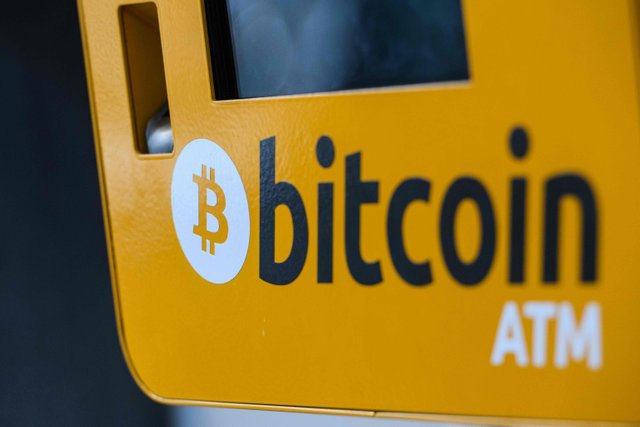Over the past few weeks, investors have been flocking to bitcoin, the digital currency whose value has soared by about 2,000 percent in the past year alone. And while many economists are cautioning against excitement about bitcoin — which is caught up in what may be one of the biggest speculative bubbles in history — it's important to note just how revolutionary the technology may be.

It is only a matter of time before paper money is phased out. Sweden, where about 2 percent of value of transactions are done in cash, may eliminate physical money within five years. Most central banks are working on technologies to power a future digital currency.
Bitcoin and other cryptocurrencies are based on a complicated technology known as blockchain, which acts like a digital ledger of all transactions completed with the currency. It's somewhat similar to the serial number that you can find on every dollar bill, but it actually means something because it makes bitcoin nearly impossible to counterfeit.
The exploding value of bitcoin has many observers predicting the launch of a U.S.-backed digital cryptocurrency, colloquially known as fedcoin. And there are many reasons beyond fighting counterfeiting to switch to a digital dollar.
When was the last time you paid for anything with a $100 bill? Or even a $50? Many retailers won't even take them. Most ATMs spit out twenties no matter how much you withdraw. And yet 79 percent of U.S. dollars in circulation are represented by $100 bills. Include the $50 notes, and it's 85 percent.
So where are all these bills? In black markets. When police first captured infamous drug lord Joaquín "El Chapo" Guzmán, they also discovered a cash hoard including more than $200 million, mainly in $100 notes.
Cash has the distinct advantage of being anonymous. You can put cash under your mattress or in a vault, and no one knows about it except you. A national cryptocurrency would make it far more difficult for criminals to hoard money because all transactions would be recorded in the government ledger. If a transaction was deemed illegal, the parties to the transaction could be identified. This is also true with bitcoin, whose ledger is viewable to anyone. Despite the negative press about bitcoin being used for illegal transactions, bitcoin is not anonymous, and criminals who use it often do not understand that their transactions are being recorded.
There is another reason for governments to like the idea of a national cryptocurrency: strengthening the power of monetary policy to help manage the economy.
Currently, the Federal Reserve lowers interest rates during tough economic times, but the Fed is practically limited at the zero bound because it is difficult to impose negative interest rates (regardless of whether that would be good policy). Suppose bonds were issued with a negative interest rate of 2 percent, making it expensive for investors to hold them. Who would buy them? Why not hold cash, which has a zero percent interest rate? With a national cryptocurrency, whose supply is controlled by the central bank, rates can be negative.
Hi! I am a robot. I just upvoted you! I found similar content that readers might be interested in:
https://www.washingtonpost.com/opinions/bitcoin-is-big-but-fedcoin-is-bigger/2017/12/18/53e2e79a-e1b8-11e7-89e8-edec16379010_story.html
Downvoting a post can decrease pending rewards and make it less visible. Common reasons:
Submit
Congratulations @cryptobabag! You received a personal award!
Click here to view your Board
Downvoting a post can decrease pending rewards and make it less visible. Common reasons:
Submit
Congratulations @cryptobabag! You received a personal award!
You can view your badges on your Steem Board and compare to others on the Steem Ranking
Vote for @Steemitboard as a witness to get one more award and increased upvotes!
Downvoting a post can decrease pending rewards and make it less visible. Common reasons:
Submit